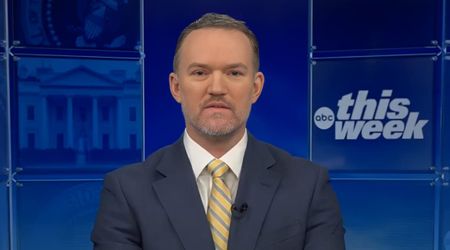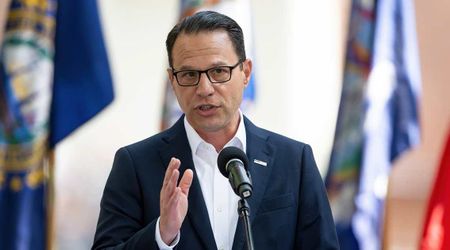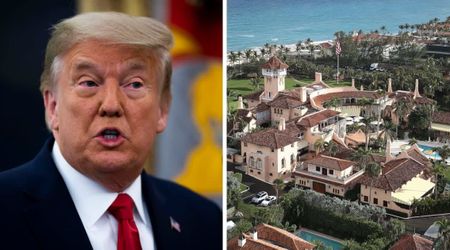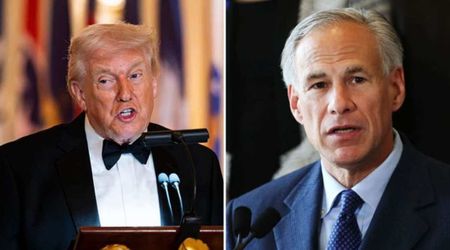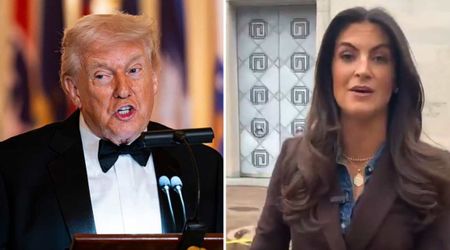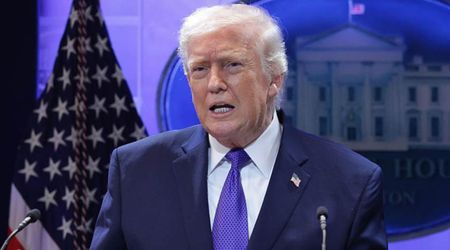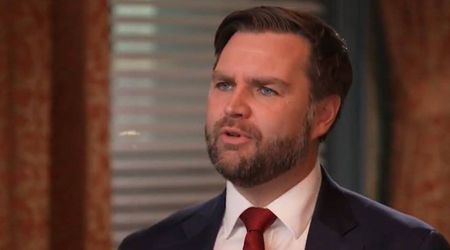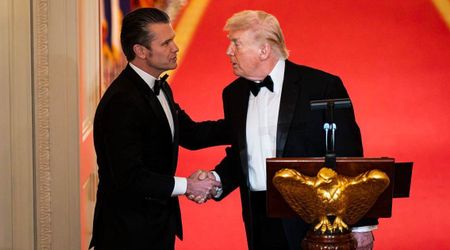Lawrence O'Donnell reveals why Donald Trump hasn’t hit back at Elon Musk’s criticism of his spending bill

WASHINGTON, DC: When Elon Musk brands your “big, beautiful” budget bill a “disgusting abomination,” it’s only natural to expect Donald Trump to hit back hard.
After all, the US president never misses a chance to give it back when he’s called out publicly. But this time, Trump has been shockingly quiet about Musk’s blistering takedown of his prized spending package.
Lawrence O’Donnell explains why Donald Trump is silent
MSNBC’s Lawrence O’Donnell thinks he knows what’s behind the silence. On The Last Word, O’Donnell insisted that Trump is scared of Musk, HuffPost reported.
“That is how you know who Donald Trump fears in this world,” he said. “If you attack Donald Trump and Donald Trump says nothing, Donald Trump’s silence is the biggest expression of fear that he has.”
Mega donor Elon Musk goes rogue
Elon Musk isn’t just any critic. The world’s richest man backed Donald Trump in a big way during the 2024 campaign, pumping serious cash into his comeback effort. As a thank-you, Trump handed him the reins to the Department of Government Efficiency (DOGE) with one mission: to slash public spending.
But now that Musk has left the post and is back to being a private citizen, he is saying that the bill is torching the very thing he was supposedly helping to fix.
“I was disappointed to see the massive spending bill, frankly, which increases the budget deficit, not just decreases it, and undermines the work that the DOGE team is doing," Musk said in an interview with CBS News. "I think a bill can be big or it can be beautiful, but I don't know if it can be both. My personal opinion.”
On Tuesday, Musk unloaded on X (formerly Twitter) in a post that screamed betrayal. “I am sorry, but I just can't stand it anymore. This massive, outrageous, pork-filled Congressional spending bill is a disgusting abomination. Shame on those who voted for it: you know you did wrong. You know it,” Musk wrote.
“It will massively increase the already gigantic budget deficit to $2.5 trillion (!!!) and burden America citizens with crushingly unsustainable debt," he added.
It will massively increase the already gigantic budget deficit to $2.5 trillion (!!!) and burden America citizens with crushingly unsustainable debt https://t.co/dHCj3pprJO
— Elon Musk (@elonmusk) June 3, 2025
Donald Trump’s lukewarm clapback
President Donald Trump finally gave a response, kind of. When a reporter asked about Elon Musk’s CBS comments, the president didn't mention his former "first buddy" at all.
“Well, the reaction is a lot of things. No. 1, we have to get a lot of votes. We need to get a lot of support. And we have a lot of support. We had to get it through the House. We have no Democrats. If it’s up to the Democrats….” he insisted.
Trump also tried to downplay things by reminding everyone that the bill isn’t law yet.
“It’s got a way to go,” he said, adding that it still needs to pass the Senate and go back to the House.
But there was no mention of Musk’s “disgusting abomination” comment—No Trumpian takedown, no new nickname, and not a single rage post.
For a man who thrives on feuds, that might be telling.
Why Donald Trump might be terrified of Elon Musk
On MSNBC, Lawrence O’Donnell doubled down on his “Trump fears Musk” theory. According to him, Donald Trump is probably terrified that Elon Musk could use his billionaire status to sink allied GOP candidates in the primaries.
Trump “fears the richest person in the world convincing Republican members of the Senate and the House not to vote for Donald Trump’s budget bill that Elon Musk now calls a ‘disgusting abomination,’” O’Donnell said.
According to the nonpartisan Congressional Budget Office, the bill Musk is raging against is expected to add $3.8 trillion to the deficit over the next 10 years, mostly due to hefty tax cuts. Even fiscal conservatives in Congress are sweating, since the bill itself proposes a $4 trillion debt ceiling increase.
Lawmakers are racing to get it passed by July 4, with a hard deadline at the end of July to avoid a potential US debt default in August.

